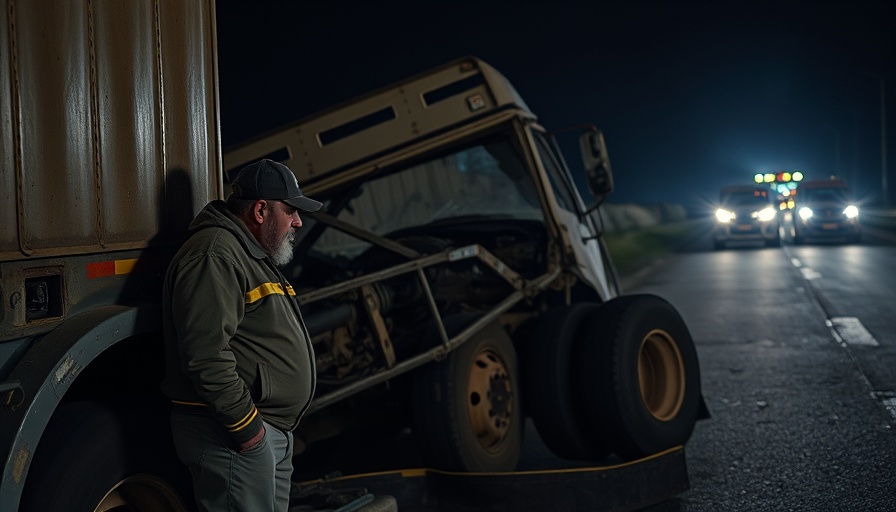
Tragedy on Nigeria's Roads: Another Fatal Truck Accident
The recent incident on a busy highway near Abuja, Nigeria, has reignited discussions about the alarming state of transportation safety in the country. A trailer carrying cement lost control and crashed into a line of halted vehicles, resulting in at least eight reported fatalities. As the trailer burst into flames, the sequence of events highlighted both the chaos of road travel in Nigeria and the underlying systemic issues that contribute to such catastrophic accidents.
In 'At least 8 killed after a trailer crashed into vehicles and burst into flame,' the discussion dives into transportation safety, exploring key insights that sparked deeper analysis on our end.
Understanding the Situation: What Happened?
The crash occurred close to the N bridge, approximately 10 kilometers from Abuja's city center. According to police reports, the trailer, equipped to run on compressed natural gas (CNG), collided with 14 vehicles. The fire ignited from the crash swiftly engulfed all affected vehicles, trapping many inside. Such horrific images are now painfully familiar to the public, accentuating the urgency for preventive measures in a country that struggles with frequent fatal truck accidents due to its aging infrastructure.
The Broader Context: Infrastructure Challenges in Nigeria
This tragic event underscores a recurring theme in Nigeria: the lack of a robust railway system that can efficiently transport cargo. Without this alternative, freight trucks dominate the roads, often leading to catastrophic outcomes. Indeed, similar accidents have marred Nigeria's roads; just in January, a gas tank explosion claimed 98 lives in a different incident. The absence of effective transport strategies has created an environment ripe for such tragedies, costing countless lives and instilling fear among commuters.
Fatal Truck Accidents: A Disturbing Pattern
The statistics surrounding truck-related accidents are alarming. In recent years, Nigeria has reported numerous similar incidents, raising questions about the government's accountability and the infrastructure's integrity. For professionals working in the fields of public policy and transportation, these examples present a pressing issue that must never be overlooked. As authorities scramble to enhance regulations and improve vehicle maintenance standards, skepticism remains regarding the implementation of real change.
Government Accountability: Addressing Systemic Issues
In light of this tragedy, there's a critical need for increased government accountability. There is a strong sentiment among citizens and experts alike calling for an overhaul of the transport sector. This includes stricter regulations on freight transport and ensuring the safety of the vehicles operating on public roads. The public deserves clarity around what measures are in place to prevent further accidents and how government officials plan to address the inadequacies in the current system.
Raising Awareness: The Public's Role in Prevention
In the face of such daunting challenges, public awareness and civic engagement emerge as vital tools for change. Professionals, advocacy groups, and concerned citizens must unite in a common goal: demand accountability and transparent governance. Engaging in discussions, sharing insights on social platforms, and participating in local forums could catalyze significant changes in how transportation safety is managed across Nigeria.
Conclusion: A Call for Action
The horrific accident that resulted in the tragic loss of eight lives serves as a solemn reminder of the ongoing dangers posed by an insufficient transportation system. Moving forward, it is imperative for all stakeholders—government officials, transportation authorities, and the public—to collaborate and develop sustainable infrastructures and regulations that prioritize human safety above all else. The future of road travel in Nigeria must not just improve; it should evolve into a model of safety and efficiency, ensuring that such tragedies become a relic of the past.
 Add Row
Add Row  Add
Add 




Write A Comment